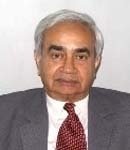Terror in America: US Military Options
09 Oct, 2002 · 600
PR Chari analyses the effect of the recent terrorist attacks on the American psyche and ponders at the various options available to them now
The
United States
will never be the same after Black Tuesday; its sense of invulnerability, sheltering between the
Atlantic
and
Pacific
Oceans
, has disappeared after the World Trade Centre towers in
New York
and the Pentagon in
Washington
were attacked. They were/are the symbols of American economic and military power. Had the airplane that crashed in
Pennsylvania
succeeded in attacking the White House, the symbol of American political power would also have been assaulted.
America
’s wars in the last century were fought on foreign soil; whilst it accepted the economic costs and the deaths of its soldiers in those wars, the horrors of conflict occurred elsewhere, in
Europe
and
Asia
and
Africa
and
Latin America
. The
United States
remained inviolate until Black Tuesday. The psychological dimension of this rude awakening cannot be underestimated. It has created a heightened sense of insecurity in the American government, a fear of crowded places and air transportation afflicts its people. A hint of xenophobia is also creeping in with citizens having stereotypical features of Arabs and Muslims being singled out for attack. This feeling could increase as the economic downturn in the
United States
gains momentum with falling car sales and rising layoffs adding to the recessionary trends already visible in the American economy before Black Tuesday occurred.
United States
in the last decade? Has its bombing of
Iraq
, attacks on
Sudan
and
Afghanistan
created this sense of hopelessness and desperation?
Pakistan
in the difficult position of either supporting its creation, the Taleban and, by extension, the Taleban’s actions in providing sanctuary to Osama Bin Laden in
Afghanistan
. The alternative of supporting the Taleban and obstructing the
US
would have proved extremely costly in political and economic terms, given
Pakistan
’s isolation in the world and its staggering economy. Naturally
Pakistan
is seeking to gain as much as it can out of the American compulsion to capture Osama Bin Laden “dead or alive”; so it has abandoned, temporarily at least, the Taleban, al Qaeda, and Osama Bin Laden to support the Americans.
US
military response is still evolving. Aircraft carriers have been moved into the northern
Indian Ocean
, and aircraft positioned in the Gulf region; they are poised to launch air and missile strikes on
Afghanistan
over-flying Pakistani territory. Both
US
Secretary of Defence Rumsfeld and British Prime Minister Blair, are touring the region to strengthen political support for the coalition’s military action against
Afghanistan
. But, what shape and form could that take?
Pakistan
has been unable to deliver. Whether this will happen in future is uncertain, but the Pathan adage is worth recollecting, “every head has its price”. A variant would be for the
Northern Alliance
to undertake this enterprise. Ironically, the erstwhile combatants in
Afghanistan
, the
United States
and
Russia
, are cooperating in this venture. The next best option would be for the coalition forces to undertake a “surgical operation”, by a missile or bomb attack to kill Osama Bin Laden. Or capture or kill him in a commando operation. The problem would be to acquire pinpoint information about Osama’s whereabouts; this would be very difficult given the nature of the Afghan terrain. The worst possible option would be bombing of locations in which he is suspected to be hiding – the collateral damage to its population, already suffering the ravages of starvation would alienate world opinion. The creation of larger numbers of desperate people who willingly contemplate suicide attacks can hardly be the end objective of
US
policy.
We share the grief at the fate of innocents killed and maimed in these attacks. Terrorism is part theatre, theatre of the macabre if you will, designed to focus attention of the intended audience – the global community in this case – to the terrorist’s cause. And what could that cause be apart from highlighting the vulnerability of the American homeland? All of
The immediate response of the Bush administration to assuage the enormous sense of outrage in the American people is understandable. Osama Bin Laden was identified as the hate object, and the Al Qaeda organization as the instrument of his malevolence; the Taleban was targeted as his patron. No thought was given to the root causes underlying the phenomenon of Osama Bin Laden, his acceptance in the Muslim world, and ability to enlist large numbers of recruits willing to sacrifice their lives. They cannot be dismissed as religious fanatics. The Bush administration should reflect on the desperation imbuing these suicide squads of Osama Bin Laden. Why is this happening? Could it be the result of the unilateralism of the
These events placed
The
The most desirable outcome would be for the Taleban to deliver Osama Bin Laden “dead or alive”. So far
What then can or will the coalition forces do in the coming days? The world waits and watches.


